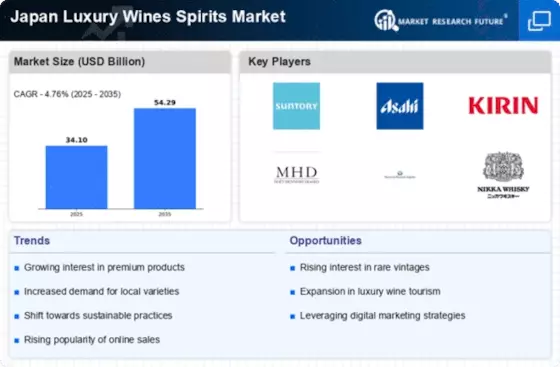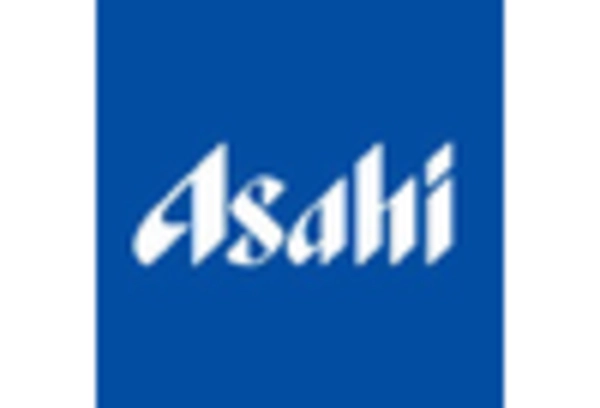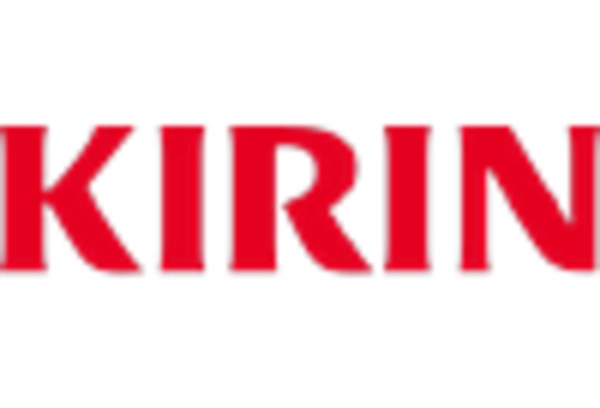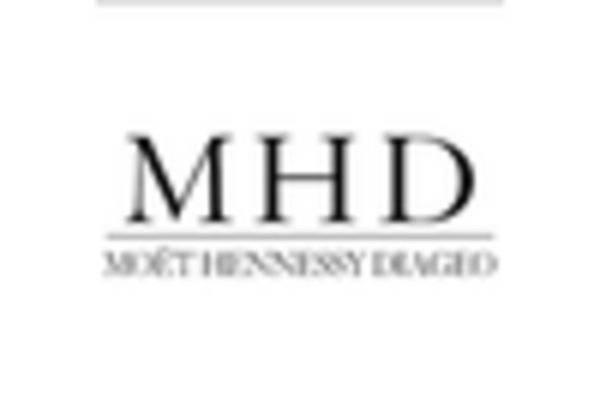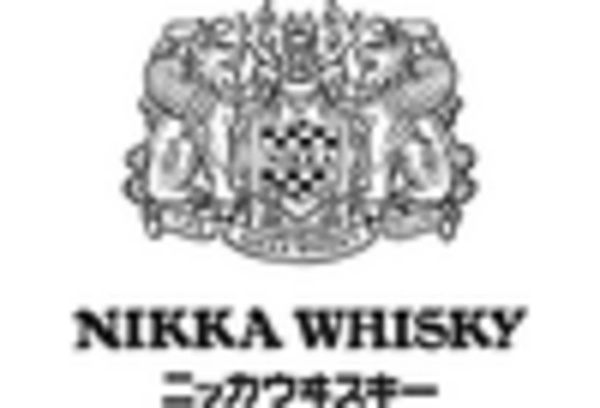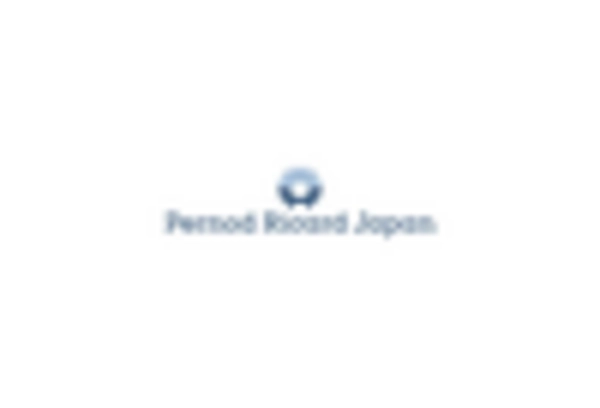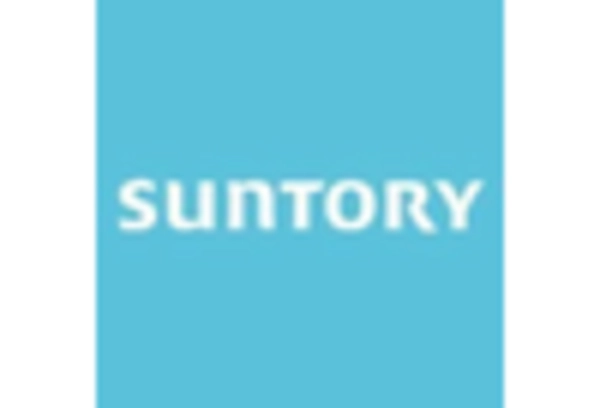Influence of Global Trends
The Japan Luxury Wines Spirits Market is increasingly influenced by global trends, particularly the rising popularity of international wine and spirit brands. As Japanese consumers become more exposed to global luxury products through travel and digital media, there is a growing preference for foreign wines and spirits, which are often perceived as symbols of status and sophistication. This trend is evidenced by the increasing importation of premium wines from regions such as Bordeaux and Napa Valley, which have seen a rise in sales of over 20% in recent years. Additionally, the presence of international wine festivals and tasting events in Japan has further stimulated interest in diverse offerings, thereby enriching the local market landscape.
Growing Affluence of Consumers
The Japan Luxury Wines Spirits Market is experiencing a notable surge in consumer affluence, which appears to be a significant driver of market growth. As disposable incomes rise, particularly among the younger demographic, there is an increasing willingness to invest in premium wines and spirits. This trend is reflected in the growing number of high-end wine and spirit retailers across urban areas, catering to a clientele that seeks quality over quantity. According to recent data, the luxury segment of the market has expanded by approximately 15% annually, indicating a robust demand for exclusive products. This affluence not only enhances purchasing power but also fosters a culture of luxury consumption, thereby propelling the Japan Luxury Wines Spirits Market forward.
Evolving Regulatory Environment
The Japan Luxury Wines Spirits Market is also shaped by an evolving regulatory environment that impacts the production and distribution of luxury beverages. Recent policy changes aimed at promoting local producers have led to increased support for domestic wineries and distilleries, fostering a competitive landscape. For instance, the government has introduced initiatives to reduce taxes on locally produced spirits, which has encouraged investment in the sector. This regulatory support not only enhances the visibility of Japanese brands but also stimulates innovation within the industry. As a result, the market is likely to see a rise in the availability of unique, locally crafted products that appeal to both domestic and international consumers.
Growing Interest in Wine Tourism
The Japan Luxury Wines Spirits Market is benefiting from a growing interest in wine tourism, which has become a vital driver of market expansion. Regions such as Yamanashi and Hokkaido are emerging as popular destinations for wine enthusiasts, attracting both domestic and international tourists. This trend is bolstered by the increasing number of wine festivals and vineyard tours that showcase local production. Data suggests that wine tourism in Japan has seen a growth rate of approximately 12% annually, contributing to the overall market dynamics. As consumers seek immersive experiences, the intersection of travel and luxury wine consumption is likely to further enhance the visibility and appeal of the Japan Luxury Wines Spirits Market.
Cultural Shift Towards Premiumization
The Japan Luxury Wines Spirits Market is witnessing a cultural shift towards premiumization, where consumers are increasingly prioritizing quality and craftsmanship over mass-produced alternatives. This shift is particularly evident among millennials and Gen Z consumers, who are more inclined to seek out artisanal and small-batch products. The market has seen a rise in demand for premium sake, whiskey, and wine, with sales figures indicating a growth rate of approximately 10% in the premium segment. This cultural appreciation for high-quality products is reshaping consumer behavior, leading to a more discerning clientele that values authenticity and heritage in their purchasing decisions. As a result, the Japan Luxury Wines Spirits Market is adapting to meet these evolving preferences.


